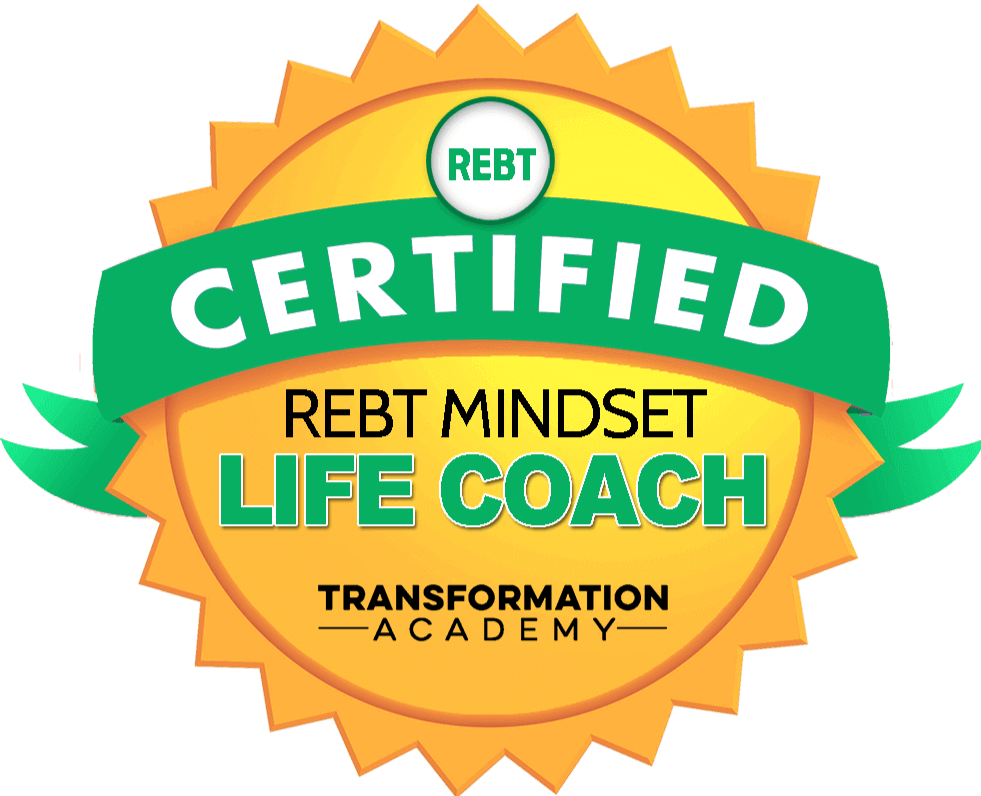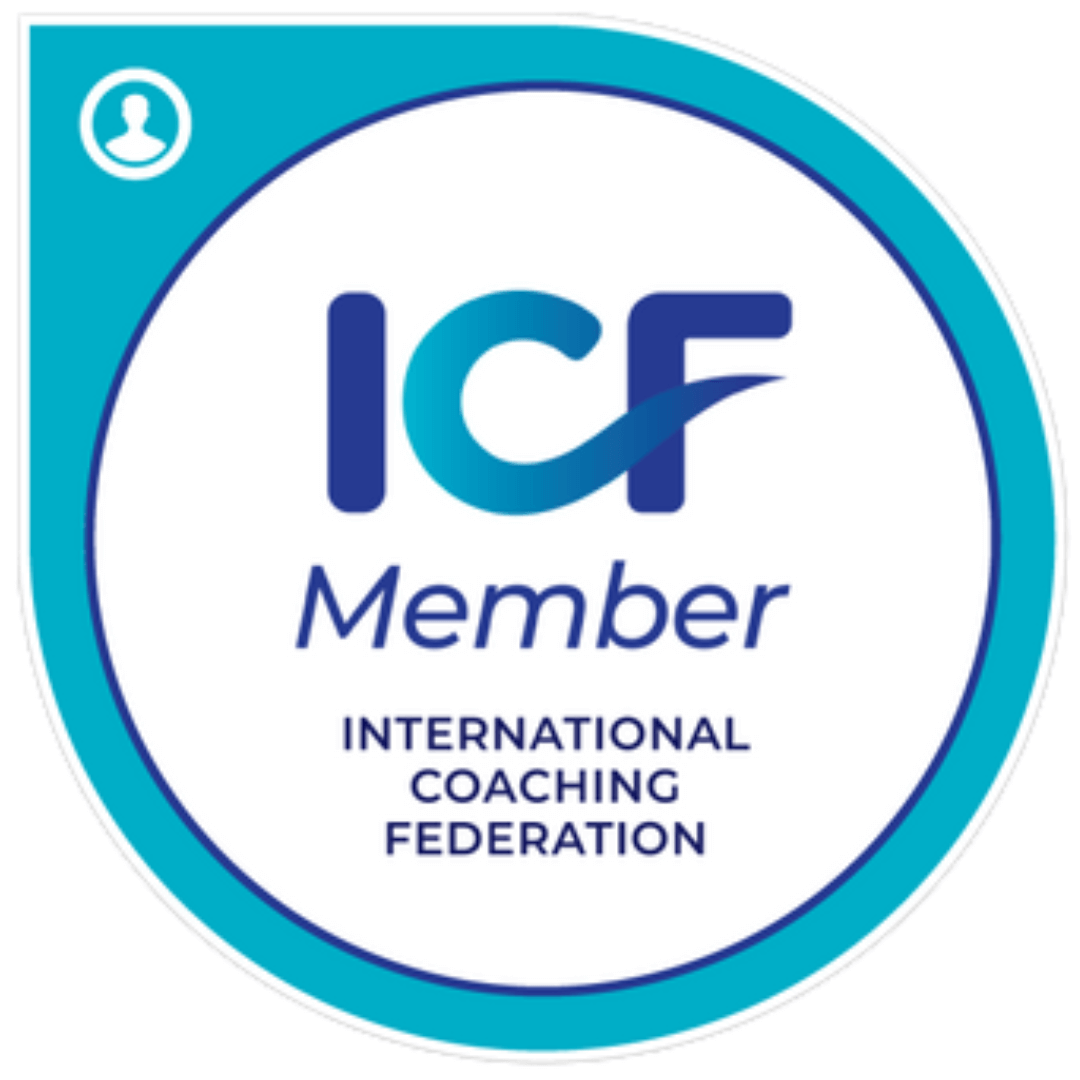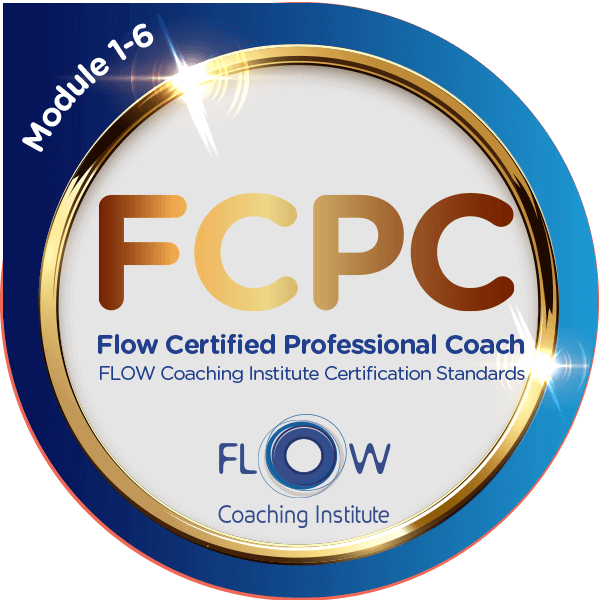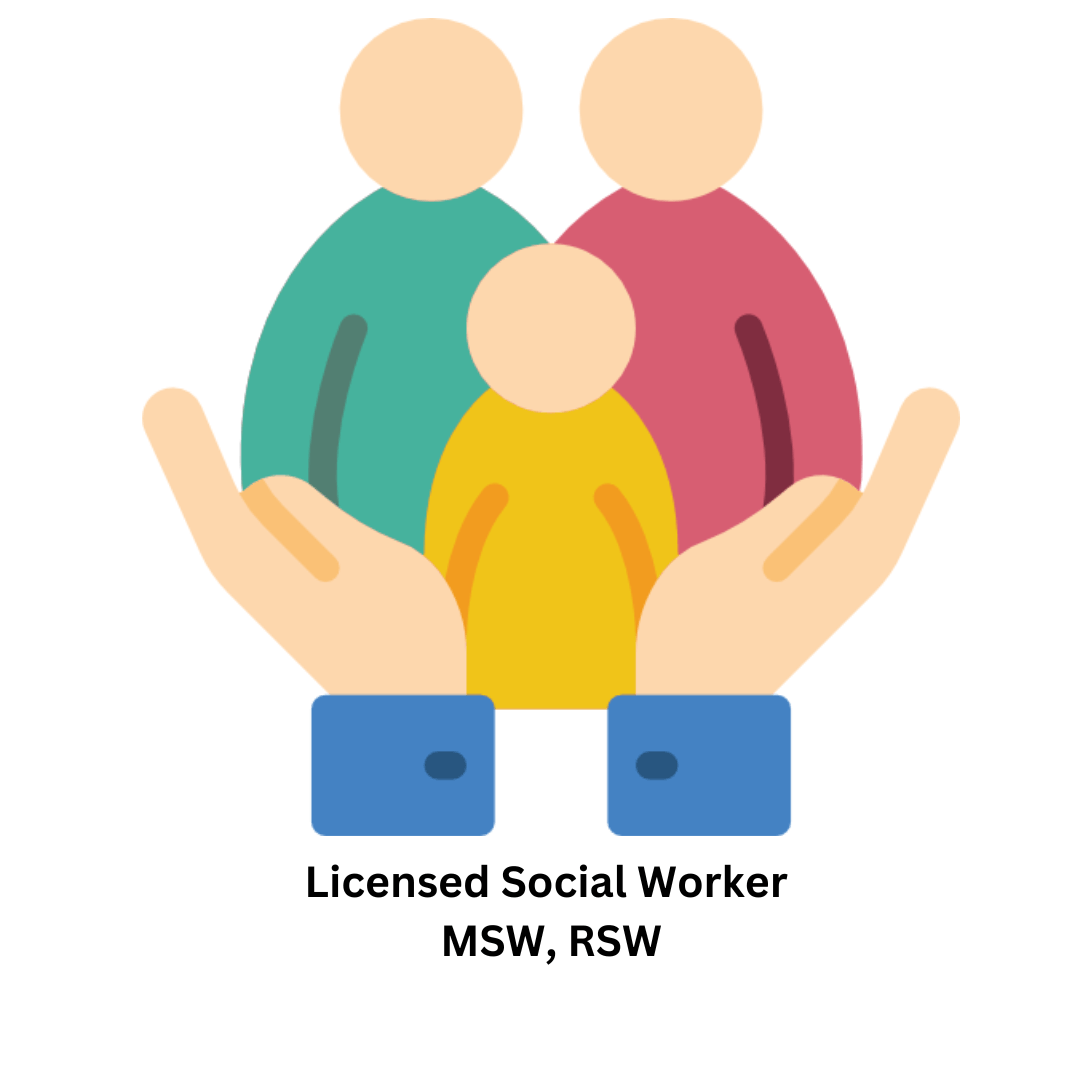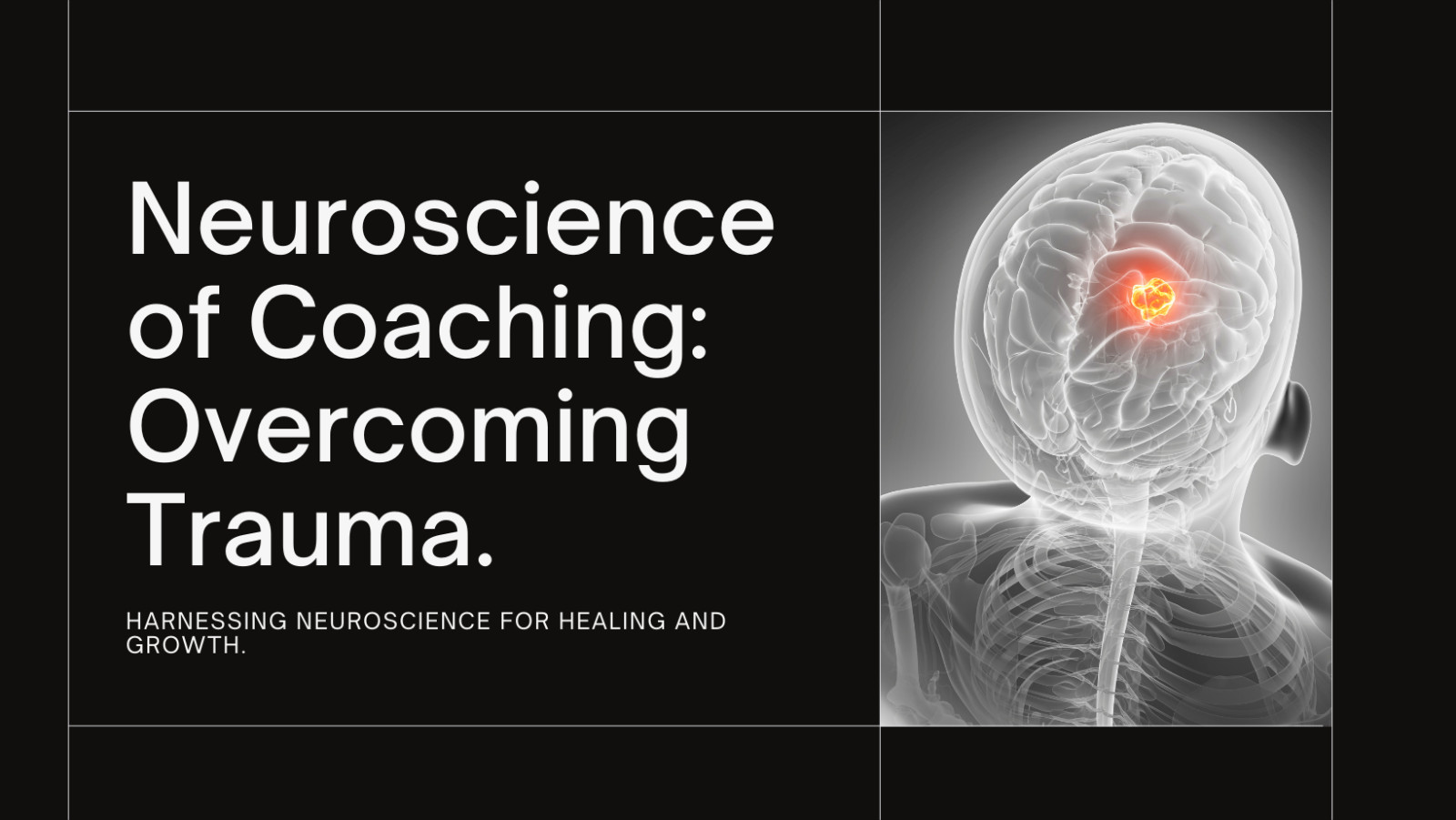
💫 Coping with the impact of trauma can be incredibly challenging. How have you been managing the effects of trauma on your daily life?
🧠 Neuroscience reveals how coaching can be transformative in overcoming trauma, rewiring neural pathways and fostering positive change. What challenges have you faced in overcoming the impact of trauma on your well-being?
🌱 Trauma can disrupt our brain's processing, leading to anxiety, depression, and emotional dysregulation. How has trauma affected your emotional well-being and sense of stability?
🤝 Selecting the right coach is crucial for your trauma healing journey. What kind of support would be most beneficial for you in navigating the complexities of trauma and healing from its effects?
This partnership leverages the power of coaching and neuroscience to foster a holistic approach to healing, enabling personal growth and fulfillment in the face of trauma's challenges.
Read my latest article and if you need you can always connect with me, the journey of healing from trauma is deeply personal, and it can lead to increased resilience and empowerment. If you are seeking support in overcoming trauma and fostering personal growth, I invite you to connect with me at nimir.raval@eigrowth.org for a holistic coaching experience. Let's embark on this transformative journey together.

Spring, a season of vibrant blooms and rejuvenating energy, presents a unique opportunity for personal growth and enhancing mental well-being. As we transition from the cold of winter to the warmth of spring, the environment around us awakens, offering a potent reminder of the potential for renewal and transformation within ourselves. It's a time to embrace change, reassess personal goals, and engage in activities that foster growth and well-being.
The arrival of spring is not only a visual feast but also a period that can have a profound positive impact on our mental health. Exposure to the natural beauty of spring can help reduce stress and anxiety, boosting mood and overall well-being. Activities like outdoor exercise, gardening, and practicing mindfulness in nature are excellent ways to tap into the seasonal energy, promoting physical and emotional health.
This season encourages us to explore various paths to personal renewal, such as engaging in creative expression through art therapy, pursing innovative energy work like Reiki, or experiencing the calming effects of sound healing. Spring offers an array of opportunities to support mental health and embark on a journey of self-discovery and revitalization. By choosing activities that nourish the mind and soul, we can fully embrace the transformative power of spring and bloom alongside nature into our most resilient and positive selves.
Read more...
Queer relationships, though increasingly recognized and accepted, continue to face significant challenges due to persistent family and social stigma. This stigma manifests in various harmful ways, such as rejection, criticism, and discrimination, deeply affecting the emotional, mental, and physical well-being of individuals in queer relationships. Understanding these challenges is essential for navigating and overcoming the negative impacts on personal well-being and the health of these partnerships.
To combat the adverse effects stigma has on queer relationships, strategies for building resilience are pivotal. Building resilience involves seeking professional support, fostering open communication, and developing self-compassion, which collectively help individuals and couples navigate through adversity. Moreover, effective communication strategies, like educating loved ones, setting clear boundaries, and choosing the right timing for conversations, play a crucial role in managing family and social stigma, maintaining healthy relationships amidst challenges.
In addition to personal resilience and communication, the broader community and societal support systems offer crucial resources for queer individuals and couples. LGBTQ+ centers, online communities, and professional organizations provide spaces for connection, support, and advocacy. Engaging in activism, raising awareness, and supporting LGBTQ+ rights organizations are vital actions for promoting acceptance and challenging societal norms. By building a strong network of friends, chosen family, and allies, and celebrating queer relationships, it is possible to foster a more inclusive and supportive society, empowering individuals and couples to thrive despite the obstacles posed by family and social stigma.
Read more...
Stress and anxiety are frequent challenges in relationships, emerging from various pressures such as work, finances, or health issues. Addressing these concerns together can not only avert potential harm but also deepen mutual understanding and strengthen bonds between partners. Effective strategies and tools for managing these stresses are key to fostering a healthy, resilient connection that supports both individuals' well-being.
To combat these issues, practices like open communication, mindfulness techniques, setting boundaries, collaborative problem solving, and physical activity are essential. Additionally, employing tools such as shared journaling, couples therapy, and stress-tracking apps can provide valuable support. Together, these approaches encourage a supportive partnership, promoting trust, intimacy, and a fulfilling relationship dynamic.
Innovative solutions like crafting a relationship vision board, instigating gratitude rituals, embracing change and flexibility, engaging in shared hobbies, and integrating mindfulness practices further solidify the relationship. These activities not only enhance emotional connection and reduce stress but also cultivate a sense of joy and resilience. By embracing these strategies and tools, couples can embark on a journey toward a thriving partnership, reinforced by a deep, enduring bond and shared experiences.
Read more...In a rapidly evolving business landscape, the essence of balanced leadership has emerged as a pivotal force behind organizational success and sustainable growth. This concept marries various leadership qualities, attitudes, and behaviors, enabling leaders to navigate challenges effectively, seize opportunities, and foster a nurturing work environment. By embracing the principles of self-awareness, empathy, adaptability, strategic vision, and ethical integrity, leaders can strike the ideal balance necessary for guiding their teams and organizations towards prosperity.
Balanced leadership is built upon the foundations of profound self-awareness, allowing leaders to understand their strengths and limitations, leading to informed decision-making and continuous self-improvement. Empathy and adaptability are equally crucial, creating inclusive environments where team members feel valued and fostering a culture of innovation and resilience in the face of change. Moreover, a clear strategic vision and unwavering ethical integrity underpin the ability to inspire, motivate, and maintain the trust of team members and stakeholders alike.
The journey toward mastering balanced leadership is both transformative and continual, requiring dedication to personal growth and ethical practice. Leaders are encouraged to share their experiences and challenges, and explore further development through a comprehensive leadership course. By committing to the principles of balanced leadership, individuals can unlock their full potential, driving forward not only their personal success but also the collective success of their organizations.
Read more...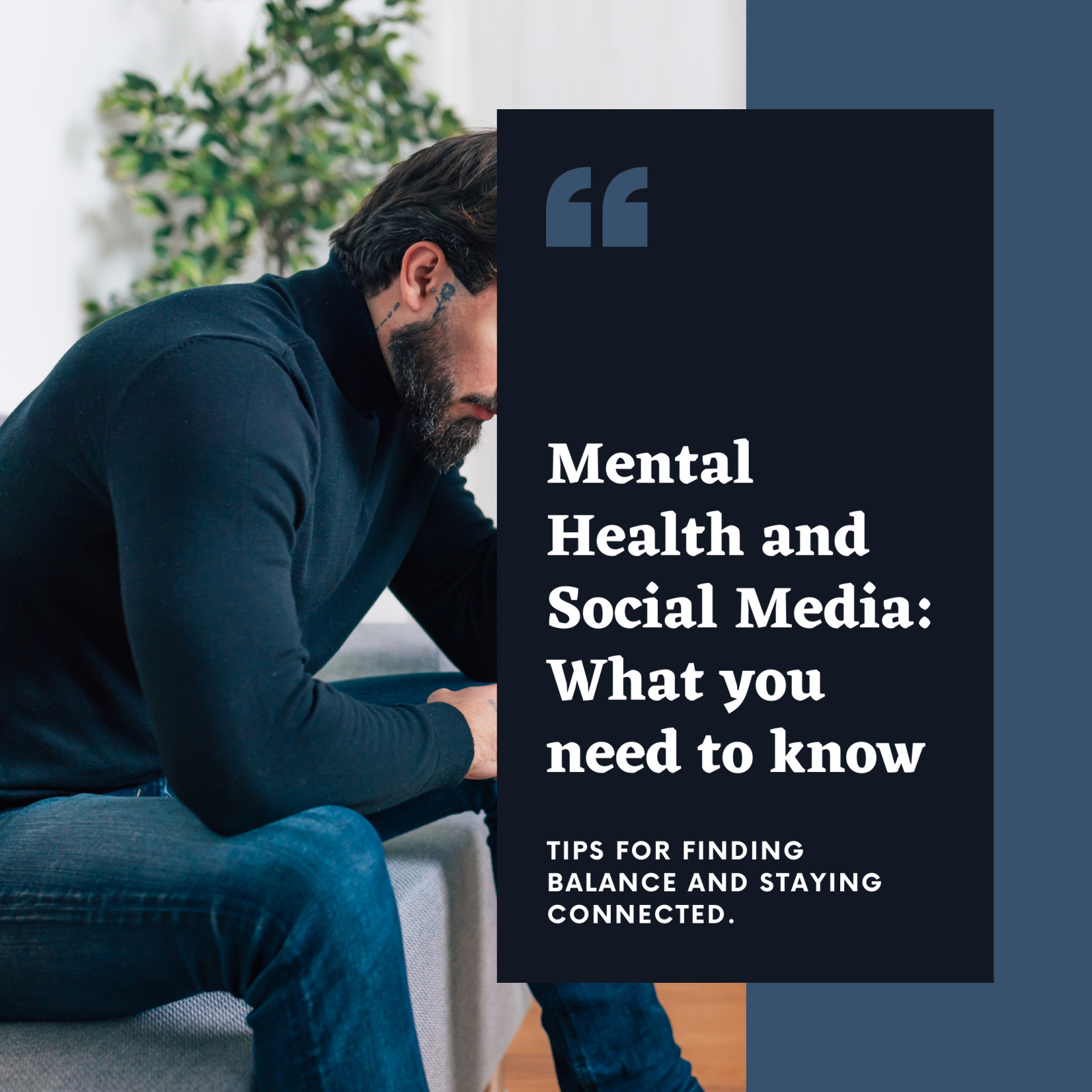
In the digital landscape of constant connectivity, social media plays a pivotal role in shaping our interactions and expressions. Despite its immense benefits for global communication and creativity, excessive social media use can detrimentally affect our mental health, leading to feelings of inadequacy, depression, and anxiety due to the onslaught of others' curated lives and the addictive nature of digital platforms. Establishing healthy boundaries is therefore essential to safeguard our well-being, enabling us to enjoy social media's advantages without allowing it to consume our time, emotions, and relationships.
For individuals, setting limits on social media consumption can significantly enhance mental health. Strategies like mindful engagement, limiting time spent on platforms, unfollowing negative accounts, and incorporating screen-free activities into daily routines can prevent feelings of inadequacy and boost overall happiness. For parents, professionals, and couples, creating specific boundaries around digital use can help combat potential negative impacts on children's development, work-life balance, and relationship satisfaction, encouraging more meaningful offline connections and personal fulfillment.
To maintain a healthy relationship with social media, it's not just about setting boundaries; incorporating regular digital detoxes, seeking professional help when needed, and cultivating self-compassion are also vital. By tackling the challenges of digital interaction with proactive strategies, individuals can find a balanced approach to social media, ensuring it remains a tool for positive connection and self-expression rather than a source of stress. Achieving this balance is key to leveraging the power of social media while protecting and prioritizing mental health.
Read more...
Anxiety is a prevalent mental health issue that significantly affects individuals' lives worldwide, but overcoming it is possible with the right strategies and support. Coaching plays a vital role in this journey, focusing on the present and future to empower individuals to manage their thoughts and actions effectively. By setting realistic goals, developing coping mechanisms, and utilizing cognitive-behavioral techniques, coaching offers a path toward managing and overcoming anxiety.
Incorporating mindfulness and relaxation techniques into one’s routine, guided by a coach, can greatly aid individuals in managing their anxiety, promoting a sense of calm and well-being. Furthermore, building resilience and boosting self-confidence are key focuses in anxiety coaching, helping individuals bounce back from challenges and foster a positive mindset. Finding the right coach, who provides a supportive environment and tailored techniques, is crucial in taking the next step toward a life free from anxiety.
To assist those facing the challenges of anxiety, coaching provides actionable steps and ongoing support to regain control and lead a fulfilling life. Setting goals, challenging negative thoughts, and prioritizing self-care are among the effective strategies shared. For anyone struggling with anxiety, seeking the guidance of a specialized anxiety coach could be the beginning of a transformative journey towards healing and personal growth.
Read more...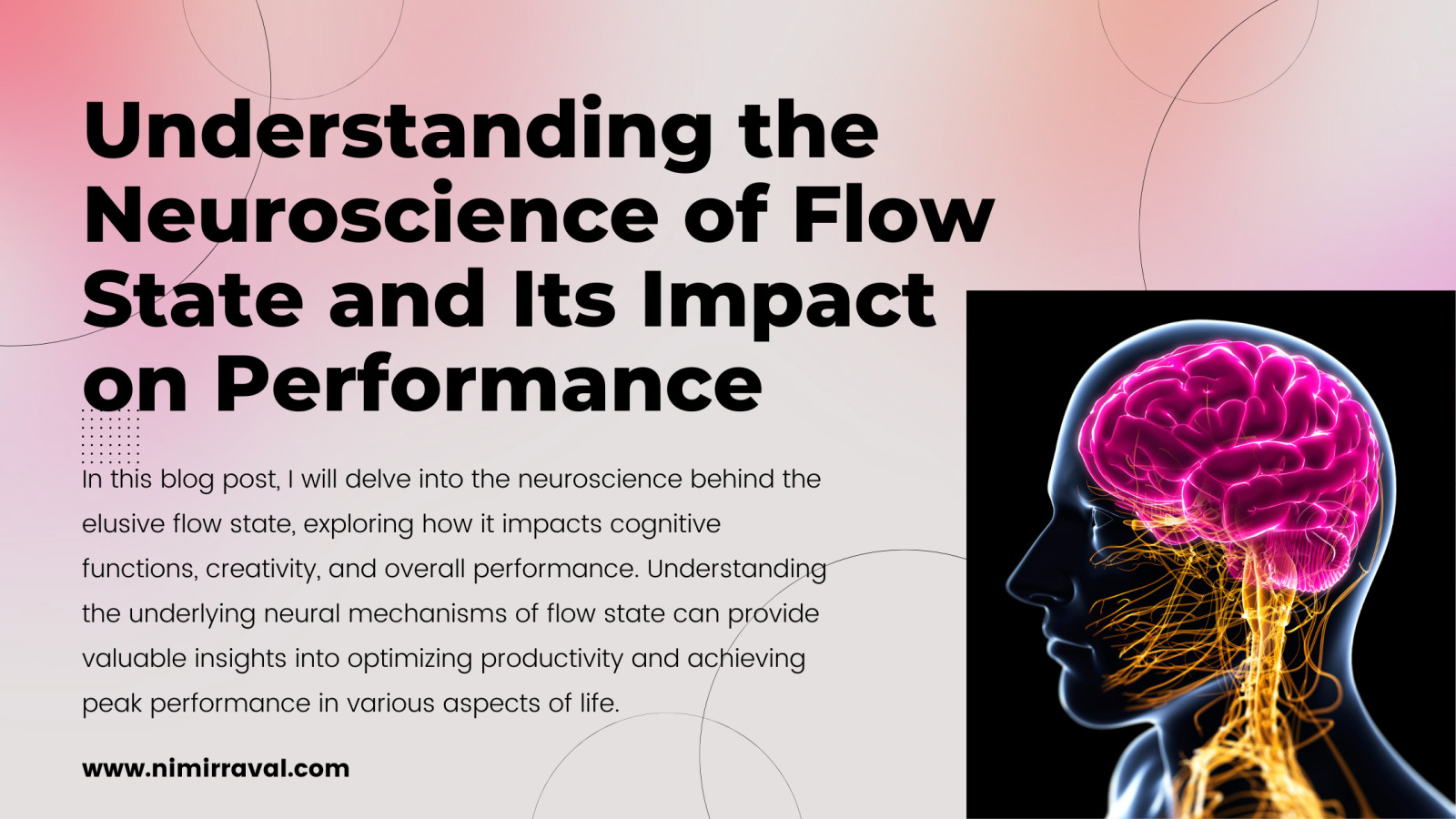
The human brain, with its extraordinary capabilities, can sometimes be hindered by distractions and procrastination. However, by understanding the concept of the "flow state," as introduced by psychologist Mihaly Csikszentmihalyi, individuals can tap into heightened concentration, engagement, and fulfillment in various aspects of life. This state of complete absorption enables increased creativity and productivity, allowing us to fully utilize our skills and achieve our goals.
Neuroscientific research sheds light on the intricate neural pathways and brain regions, such as the prefrontal cortex and basal ganglia, that underpin the flow state. This state of mind is characterized by effortless concentration, deep engagement, and a sense of enjoyment in the task. Scientists have recognized the crucial roles of systems such as the LC-NE system, which regulates attention and energy levels, and the dopaminergic reward system, which boosts motivation and satisfaction. Understanding these mechanisms can aid in achieving and sustaining the flow state, optimizing performance and well-being across diverse domains.
Combining insights from neuroscience, the article highlights the symbiotic relationship between the LC-NE and dopaminergic systems in fostering the flow state. This delicate balance between focus, motivation, and disengagement is key to achieving peak performance and satisfaction. Hence, mastering the flow state not only enhances productivity and creativity but also contributes to personal fulfillment and the transformation of challenges into victories, emphasizing the power of the brain's internal processes in elevating human potential.
The human brain, a marvel of complexity and capability, possesses the unique ability to enter a "flow state," a phenomenon where focus, creativity, and productivity soar, allowing individuals to accomplish tasks with unparalleled efficiency and satisfaction. This profound mental state, characterized by deep absorption and a sense of fulfillment, is underpinned by the intricate dance of neural pathways and brain regions, including the prefrontal cortex, basal ganglia, and amygdala. Understanding the science behind the flow state unravels the potential for individuals to harness this power, transforming the way we approach work, creativity, and everyday challenges.
Central to the regulation of our focus and engagement levels is the LC-NE system, a critical neurological command center that manages attention and energy distribution based on the task at hand. It operates in a dynamic equilibrium of exploitation, exploration, and disengagement modes, each significant for achieving and maintaining the flow state. Complementarily, the brain's dopaminergic reward system plays a pivotal role in motivation, enhancing cognitive and emotional resilience against fatigue, fostering a positive outlook, and ultimately contributing to the sense of accomplishment associated with flow activities.
By delving into the neuroscience behind the flow state and understanding the key systems involved, individuals can learn to leverage these mechanisms to optimize performance and well-being across various life domains. This insight not only propels us towards maximizing our capability for intense focus and creativity but also emphasizes the importance of balancing our mental and physical health to sustain high levels of productivity. Through strategic engagement with our brain's innate processes, achieving flow becomes a more attainable reality, enabling us to transform our approach to tasks from mundane to extraordinary.
Read more...
Wellness trends are continually transforming the way we understand and care for our physical, mental, and emotional health. These trends highlight the importance of personal well-being, illustrating how it influences our physical health, emotional balance, happiness, and resilience against stress. Innovations in technology such as wearable devices, telemedicine, mental health apps, and virtual reality offer new methods to enhance our well-being, making personal health practices more accessible and tailored to individual needs.
The emergence of mindfulness and mental wellness practices emphasize the significance of being present and fully engaged with our thoughts and environment, showcasing the benefits of meditation and mindfulness on stress reduction and mental clarity. Similarly, biohacking presents a proactive approach to personal health, emphasizing the use of technology and lifestyle changes to optimize physical performance and well-being. These methods, along with holistic and integrative wellness practices, offer comprehensive ways to improve health and prevent illness by addressing the mind, body, and spirit collectively.
Amidst evolving wellness trends, the integration of social and environmental factors highlights the interconnectedness of our well-being with the communities and environment we inhabit. Creating supportive, inclusive spaces and adopting sustainable living practices are emerging as crucial elements of holistic well-being. Embracing these wellness innovations can lead to significant improvements in physical health, mental clarity, and emotional balance, marking a path toward a more fulfilling life.
Read more...
In this blog post, I explore the concept of procrastination, its underlying causes, and its impact on mental health. Perfectionism is identified as a common roadblock that fuels procrastination, leading to excessive self-criticism and fear of failure. Recognizing the signs of being stuck in a perfectionist mindset is crucial for overcoming this trap and becoming more efficient and satisfied with your work. Procrastination can take a toll on your mental health, causing increased stress, anxiety, and feelings of guilt or low self-worth. By recognizing your procrastination patterns and implementing strategies such as breaking tasks into smaller steps and setting achievable goals, you can overcome procrastination and achieve greater productivity. Embracing progress over perfection and celebrating small victories along the way can help you stay motivated and ultimately lead to long-term success. Seeking support and accountability from others is also beneficial in overcoming procrastination, especially if perfectionism is a significant obstacle for you.
Read more...
This blog post explores the challenges of winter and post-holiday blues and offers five mental health strategies to navigate this season with greater ease. It emphasizes the importance of self-care practices, such as reading, warm baths, and mindfulness, to alleviate stress and enhance mood. Staying physically active is also crucial for mental well-being, as regular exercise releases endorphins and reduces stress, anxiety, and depression. Seeking support from loved ones and professionals, using light therapy, and exploring alternative therapies are other effective strategies highlighted in the article. Additionally, maintaining a well-balanced diet is pivotal in supporting mental health during the winter months. By prioritizing these strategies, individuals can combat the winter blues and embrace self-care for optimal mental well-being.

Understanding work-life balance is crucial for maintaining mental and physical well-being. Achieving balance between work and personal life allows for improved performance at work and quality time spent with family and pursuing hobbies. Wellness programs in the workplace positively impact work-life balance by helping employees manage stress, improve physical health, and enhance overall well-being. Incorporating wellness into daily routines brings several benefits such as improved mental and physical health, increased productivity, better stress management, and enhanced work-life balance. Participating in wellness activities like yoga, meditation, and regular exercise promotes relaxation, boosts energy levels, and enhances mental clarity. Creating a work environment that promotes employee wellness and setting wellness goals are crucial aspects of achieving work-life balance. Mental and emotional wellness, as well as physical wellness, play significant roles in maintaining work-life balance. Financial wellness strategies, such as creating a budget and investing in retirement plans, are also essential for a balanced work-life routine. Prioritizing wellness is the key to achieving a healthy work-life balance and creating a more fulfilling life.
Read more...
Understanding Anxiety and Depression - Anxiety and depression are common mental health conditions that can affect anyone, and it's important to recognize that they are serious medical conditions, not signs of weakness. These conditions can be caused by a combination of factors and seeking professional help is crucial. Treatment options may include therapy, medication, lifestyle changes, and support from loved ones.
The Connection Between Life Balance and Mental Health - Maintaining a balanced lifestyle can significantly impact your mental well-being. Studies have shown that finding the right mix between work, social life, and personal time can reduce the symptoms of anxiety and depression. Taking care of your physical and emotional health is also crucial. Regular physical activity, a balanced diet, and practicing mindfulness and relaxation techniques can help manage stress and improve overall mental health.
Strategies for Achieving Life Balance - To achieve life balance, prioritize self-care, set boundaries, establish routines, seek support, and practice mindfulness. These strategies can help you establish a sense of balance and reduce the impact of anxiety and depression in daily life. Engaging in regular self-care activities, such as physical activity, healthy eating, and mindfulness, can significantly help manage stress and reduce symptoms. Seeking professional help is also important, as finding the right therapist can make a significant difference in managing anxiety and depression. Prioritizing life balance can positively impact mental well-being by reducing stress, improving coping skills, and enhancing overall mental health.
Read more...
Leadership development is crucial for success and growth in organizations. As we enter the new year, businesses are recognizing the importance of cultivating leadership skills through organic leadership. This approach empowers individuals at all levels to develop their leadership abilities, resulting in a more engaged and motivated workforce.
There are different types of leadership development, including formal programs, experiential learning, and coaching and mentoring. Each approach focuses on providing individuals with the necessary knowledge and tools to become effective leaders.
Organizations should prioritize organic leadership as it encourages adaptability, resilience, and visionary thinking. By investing in organic leadership development, businesses equip their leaders with the skills needed to navigate uncertainty and drive innovation. Additionally, businesses can benefit from a robust talent pipeline and succession planning by identifying and nurturing high-potential individuals within the organization.
To effectively implement leadership development initiatives, businesses should plan fiscally. This involves allocating a dedicated budget, assessing the return on investment, and viewing leadership development as a long-term investment. By strategically planning fiscally, organizations can ensure ongoing support and growth opportunities for future leaders. Let us prioritize the investment in leadership development in the coming year to shape a brighter future for businesses and their leaders.
Read more...
Hello Leaders,
As we enter a new year, business leaders are faced with numerous challenges and opportunities. To navigate the ever-changing landscape and drive success in the coming year, it is crucial for leaders to develop and hone their leadership skills. In this article, we will explore 10 essential leadership skills that can help business leaders thrive in the new year.
- Effective Communication: Strong communication skills are fundamental for any leader. Being able to articulate ideas, listen actively, and provide clear direction is essential for fostering collaboration and building strong relationships with team members.
- Adaptability: In today's fast-paced business environment, leaders need to be adaptable and embrace change. Being open to new ideas, flexible in approach, and willing to learn from failures can help leaders navigate uncertain situations and drive innovation.
- Emotional Intelligence: Emotional intelligence is the ability to understand and manage one's own emotions and effectively navigate the emotions of others. Leaders with high emotional intelligence can build trust, empathize with their team members, and create a positive work environment.
- Strategic Thinking: Strategic thinking involves the ability to analyze complex problems, anticipate future trends, and make informed decisions. Leaders who can think strategically can set clear goals, allocate resources effectively, and drive the organization towards long-term success.
- Resilience: Resilience is the ability to bounce back from setbacks and adapt in the face of adversity. Leaders who demonstrate resilience can inspire their teams, maintain a positive attitude, and find creative solutions to challenges.
- Empowerment: Leaders who empower their team members foster a culture of trust, autonomy, and accountability. By delegating tasks, providing opportunities for growth, and recognizing achievements, leaders can empower their team members to reach their full potential.
- Collaboration: Collaboration is essential for driving innovation and achieving organizational goals. Leaders who foster a collaborative environment encourage teamwork, value diverse perspectives, and promote a culture of inclusivity.
- Decision-Making: Effective decision-making is a critical leadership skill. Leaders who can gather relevant information, weigh different options, and make timely decisions based on sound judgment can drive success and mitigate risks.
- Continuous Learning: In a rapidly evolving business landscape, leaders must be committed to continuous learning. By seeking out new knowledge, staying updated on industry trends, and investing in personal development, leaders can stay ahead of the curve and make informed decisions.
- Inspiration: Inspiring leadership can motivate and energize teams to achieve their best. Leaders who lead by example, communicate a compelling vision, and celebrate the achievements of their team members can inspire others to go above and beyond.
In conclusion, developing these essential leadership skills can empower business leaders to navigate challenges, drive innovation, and create a positive work environment. By investing in personal growth and adopting these skills, leaders can position themselves for success in the new year and beyond.
If you are a business leader seeking to enhance your leadership skills and achieve success in the coming year, consider connecting with a certified coach who adopts the flow model. A certified coach can provide valuable insights, personalized guidance, and support throughout your leadership journey. Reach out to me to learn more about how I can help you unlock your full potential as a leader.
Remember, the journey to becoming an exceptional leader starts with a commitment to continuous growth and development. Embrace these essential skills, invest in your personal development, and seize the opportunities that lie ahead in the new year.

Are you ready to tap into your full potential and lead an extraordinary life? Being awesome isn't about conforming to societal norms or comparing yourself to others. It's about embracing your uniqueness and celebrating what makes you truly special. Cultivating a growth mindset, practicing self-compassion, setting meaningful goals, and spreading kindness are all key ingredients to unleash your awesomeness.
Embracing your individuality is the first step towards unlocking your awesomeness. Instead of trying to fit into society's expectations, learn to celebrate what makes you unique. By embracing your individuality, you open yourself up to new possibilities and discover hidden talents and abilities within. Remember, being awesome is not a fixed state; it's an ongoing journey of personal growth and development.
To truly unleash your awesomeness, it's important to cultivate a growth mindset. Embrace challenges as opportunities for growth, learn from your mistakes, and constantly seek self-improvement. By adopting a growth mindset, you'll discover that there are no limits to what you can achieve. Each challenge becomes a stepping stone towards your awesomeness.
Practicing self-compassion is another crucial aspect of being awesome. Accept your flaws, weaknesses, and limitations, and treat yourself with kindness, understanding, and forgiveness. Embrace your imperfections as part of what makes you unique. Instead of focusing on self-criticism, shift your focus to self-improvement. Remember, being awesome is about embracing your whole self, flaws and all.
Setting meaningful goals is essential to living an awesome life. Identify what truly matters to you and align your goals with your values and passions. Having a clear purpose and direction will keep you motivated and focused on your journey of awesomeness. Break your goals down into actionable steps, celebrate your progress, and adjust your path as needed. With each milestone reached, you'll inch closer to living your most awesome life.
True awesomeness lies not only in personal achievements but also in the impact you have on others. Spread kindness, positivity, and love wherever you go. Small acts of kindness can have a ripple effect, inspiring others to embrace their own awesomeness. Support and uplift those around you, celebrate their successes, and be a source of encouragement. Create a positive and supportive environment where awesomeness thrives.
In conclusion, being awesome is not a destination but a way of life. Embrace your uniqueness, nurture a growth mindset, practice self-compassion, set meaningful goals, and spread kindness. You have the power within you to make a positive impact and lead an extraordinary life. Embrace your awesomeness, shine your light, and inspire others to do the same. Remember, each of us has a unique brand of awesomeness to offer the world.
Read more...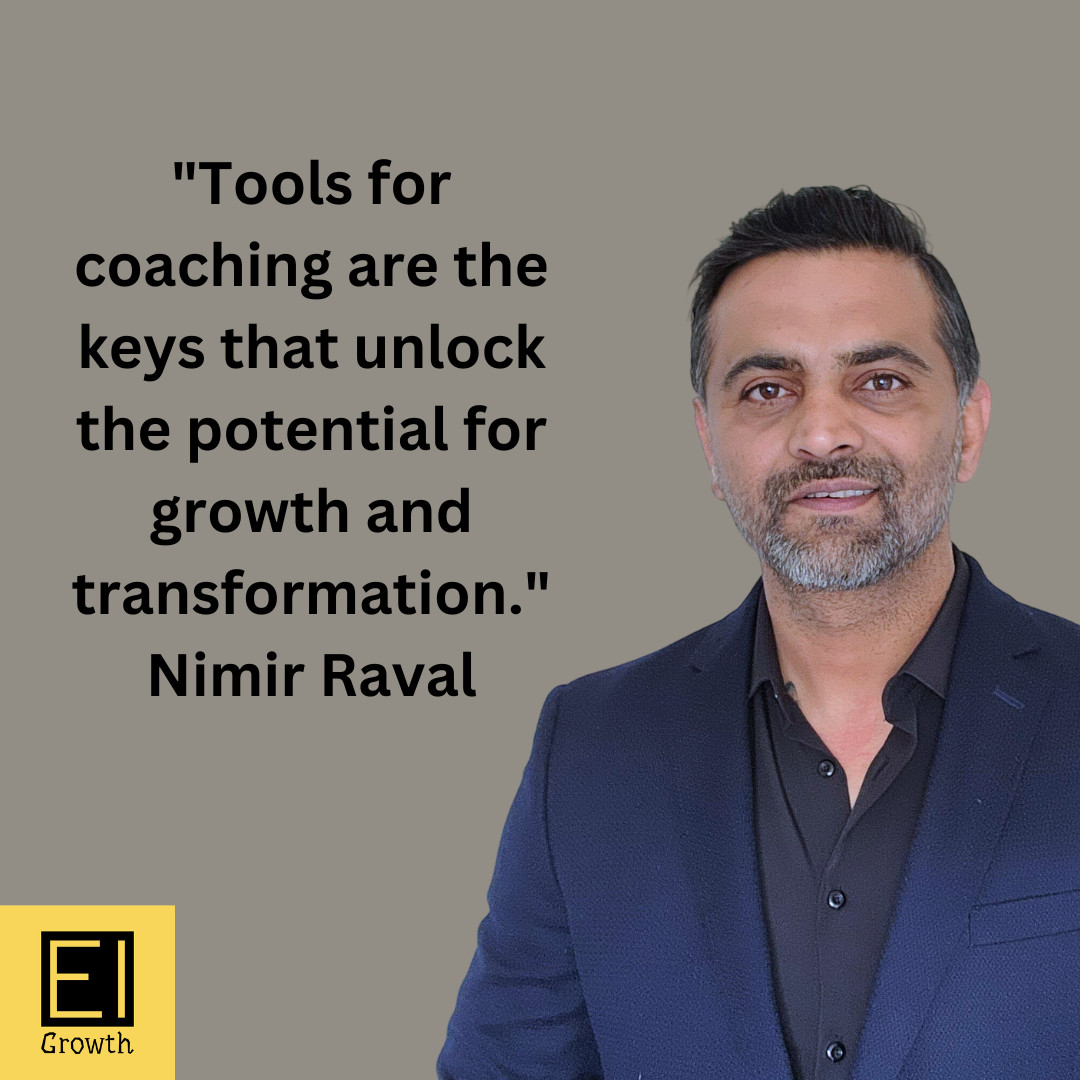
Motivation and leadership go hand in hand when driving teams toward success. Effective leaders understand the importance of motivating their team members to reach their full potential and achieve collective goals. This article will explore the relationship between leadership and motivation, the characteristics of motivating leaders, and strategies for empowering leaders to foster motivation within their teams.
The Significance of Motivating a Team
Motivating a team is crucial because it directly impacts an organization's success. When team members are motivated, they become more engaged, productive, and committed to their work, resulting in improved performance. Motivated employees are driven to excel, take initiative, and go the extra mile to achieve goals. Additionally, a motivated team fosters a positive work environment, encourages collaboration, and enhances overall employee satisfaction and retention.
Characteristics of Motivating and Inspiring Leaders
Motivating and inspiring leaders possess certain defining characteristics that set them apart. These qualities enable them to empower their teams and create a culture of motivation and growth. Let's explore eight key characteristics of motivating leaders:
- Visionary: Motivating leaders have a clear vision and effectively communicate it to their team members. They inspire others by painting a compelling picture of the future and aligning individual goals with the organization's objectives.
- Empathetic: Understanding the needs and aspirations of team members is crucial for motivating leaders. They empathize with their employees, acknowledging their challenges and providing support during difficult times.
- Effective Communication: Motivating leaders excel in communication, ensuring that goals, expectations, and feedback are conveyed clearly. They actively listen to their team members, fostering open and transparent communication channels.
- Trustworthy: Trust is the foundation of any successful team. Motivating leaders build trust by being reliable, honest, and transparent in their actions and decision-making. They create a safe environment where team members feel comfortable taking risks and expressing their ideas.
- Coaching and Development: Motivating leaders invest in the growth and development of their team members. They provide guidance, mentorship, and opportunities for skill-building, allowing individuals to realize their full potential.
- Recognition and Rewards: Motivating leaders to understand the power of appreciation and recognition. They celebrate team achievements, reward exceptional performance, and provide meaningful incentives that align with individual and team goals.
- Collaboration and Teamwork: Motivating leaders foster collaboration and teamwork by encouraging open dialogue, promoting diversity of ideas, and creating a sense of belonging within the team. They value each team member's contribution and create an inclusive environment where everyone feels valued.
- Adaptability and Resilience: Motivating leaders are adaptable and resilient in facing challenges. They lead by example, demonstrating a positive mindset and inspiring their team members to overcome obstacles and embrace change.

Empowering Leaders to Foster Motivation
Here are some strategies to enable leaders:
- Leadership Development Programs: Implement comprehensive programs that provide leaders with the necessary tools, knowledge, and skills to motivate their teams. These programs can include training in communication, emotional intelligence, coaching, and motivation techniques.
- Clear Expectations and Goals: Leaders clearly understand organizational goals and how they align with individual and team objectives. Communicate expectations and give leaders the autonomy to make decisions and drive their teams toward success.
- Feedback and Performance Management: Establish a robust feedback system that enables leaders to provide regular feedback to their team members. This feedback should be constructive, specific, and focused on growth and development. Implement performance management processes that recognize and reward high-performing individuals.
- Mentorship and Coaching: Pair leaders with experienced mentors or coaches who can guide and support them in their leadership journey. Mentorship programs provide leaders with a sounding board, allowing them to seek advice and learn from seasoned professionals.
- Continuous Learning Opportunities: Encourage leaders to learn and improve continuously. Provide access to workshops, seminars, conferences, and online resources focusing on leadership development, motivation techniques, and best practices.
- Promote a Positive Work Environment: Foster a positive work environment that values collaboration, respect, and trust. Encourage leaders to promote a healthy work-life balance, recognize and celebrate achievements, and create an ad by Example: Encourage leaders to lead by example and demonstrate the characteristics of a motivating leader. When leaders embody motivation, enthusiasm, and a positive mindset and Utilize Individual Strengths: They help leaders identify opportunities to utilize these strengths. Leveraging individual strengths enhances motivation and fosters a sense of fulfillment and accomplishment.
- Foster Innovation and Creativity: Encourage leaders to promote innovation and creativity within their teams. Provide resources and support for brainstorming sessions, idea generation, and experimentation. Recognize and reward innovative ideas and initiatives.
- Regular Communication and Feedback: Emphasize the importance of regular communication and feedback within teams. Encourage leaders to conduct one-on-one meetings, team meetings, and performance reviews to address concerns, provide guidance, and celebrate achievements.
By empowering leaders with these strategies, organizations can create a success
Motivating and inspiring leaders are critical in driving the success of teams and organizations. Effective leadership development programs, clear goals, feedback processes, and a positive work environment are key factors in fostering motivation within teams. By investing in leadership development and supporting leaders in their journey, organizations can unlock the full potential of their teams and drive sustainable success. If you're interested in learning more about leadership and how to become a better leader, I highly recommend checking out this article. And if you're looking for personalized coaching to help you reach your leadership goals, feel free to contact me. Let's work together to unlock your full potential as a leader.

Executive mental health is a critical issue in today's high-pressure business world. The constant demands and stressors of the job can take a toll on executives' mental well-being, leading to burnout and exhaustion. Prioritizing mental health is essential for executives to ensure their long-term effectiveness and overall well-being. Seeking support from mentors, supervisors, and coaches can help executives focus on their mental health and achieve greater success in their professional and personal lives. Additionally, organizations need to prioritize mental health initiatives to support executives in coping with the unique challenges they face, such as high levels of stress and pressure, work-life balance, and feelings of isolation. By implementing strategies like providing access to mental health resources and promoting a healthy work environment, organizations can improve the well-being and performance of their executives. Executives themselves can adopt essential practices such as prioritizing self-care and work-life balance, seeking support through coaching or therapy, cultivating emotional intelligence, developing stress management techniques, and fostering a healthy work environment and leadership culture. These practices will contribute to their mental well-being and success as leaders.
Read more...
Summary:
In today's fast-paced world, instant gratification has become deeply ingrained in our daily lives, leading to increased multitasking and a culture of seeking instant rewards. This trend has also impacted the workplace, with individuals expecting rapid career advancement and job hopping if their expectations are not met. However, embracing the power of a growth mindset can help individuals overcome the allure of instant results and focus on continuous improvement and perseverance. Carol Dweck's research on the growth mindset shows that those who believe in their ability to develop and improve tend to achieve greater levels of success. By embracing challenges and failures as opportunities for growth, cultivating a love for learning, and creating a growth-focused environment, individuals can unlock their full potential and achieve greater success in their personal and professional lives.
Read more...
Incorporating cognitive-behavioral therapy (CBT) techniques into executive coaching can be a game-changer for professionals looking to enhance their leadership skills and achieve peak performance. CBT focuses on the relationship between thoughts, emotions, and behaviors, aiming to identify and change negative thinking patterns and beliefs that contribute to emotional distress and unhelpful behavior. By challenging cognitive distortions, developing self-awareness, and implementing evidence-based strategies, executives can unlock their full potential, make informed decisions, manage stress effectively, and cultivate positive relationships with their teams. The application of CBT techniques in executive coaching offers practical tools that can be easily implemented in real-world settings, ultimately improving mindset, behavior, and overall success.
The implementation of CBT techniques in executive coaching has yielded remarkable results for professionals across various industries. For instance, one case study showcased how an executive struggling with imposter syndrome was able to overcome self-doubt and embrace her role as a leader through cognitive restructuring. Another case study highlighted how an executive with indecisiveness and fear of making mistakes improved his decision-making skills through the application of CBT techniques. These success stories exemplify the transformative impact of incorporating CBT techniques into executive coaching, enabling individuals to overcome challenges, enhance leadership capabilities, and achieve extraordinary results.
To effectively integrate CBT techniques into executive coaching, it is essential to understand its principles and key techniques. Cognitive restructuring involves identifying and challenging cognitive distortions and replacing them with more realistic and balanced thoughts. Self-monitoring and self-reflection enable executives to gain insights into their thoughts, emotions, and behaviors, while behavioral experiments allow them to test and reinforce new behaviors. By following a structured and systematic approach that includes assessing cognitive distortions, teaching self-monitoring techniques, using cognitive restructuring, implementing behavioral experiments, and providing ongoing support and accountability, executive coaches can effectively integrate CBT techniques into their coaching sessions and facilitate meaningful and lasting change.
By embracing CBT techniques and working with a skilled executive coach who incorporates these techniques into their coaching approach, executives can transform their mindset, overcome challenges, and unlock their true leadership potential. It's time to unlock your true potential and become the exceptional leader you aspire to be. Schedule an appointment with Nimir Raval, a certified executive coach who specializes in using CBT techniques to help professionals achieve their goals.
Read more...


